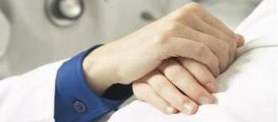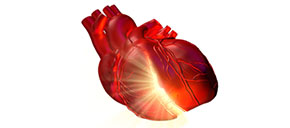EP Study and Catheter Ablation
Pre-Procedure
- Please arrive at the hospital “fasting” (nothing to eat) from the previous midnight
- You may take your morning medications with a small sip of water
- If you have been instructed to have blood drawn, please do not forget (you may be instructed to have this done several days before your procedure)
- Please make sure you have consulted with your physician if you are on coumadin or insulinfor diabetes. For most procedures, your coumadin will be discontinued or adjusted several days prior.
- If you have not received a phone call from the hospital or our office by the day before the procedure to let you know what time to arrive, please call us.
- Please arrange to have someone drive you to the hospital and home after the procedure since you will be receiving sedation and will need to rest the affected leg or groin.
- If you develop a cold or are sick, please consult your physician immediately as we may need to postpone your procedure.
The Day of the Procedure
- Please arrive at the prespecified time to allow adequate time for hospital registration and check-in; please call if you will be late.
- Please bring any additional documents your physician has requested.
- Reconfirm with your physician regarding your specific instructions with coumadin and insulin if you have diabetes.
- Please do not wear contact glasses
- If you can avoid, please do not wear or bring jewelry, watches, or money the day of your procedure.
- If you are planning to stay overnight, feel free to bring your own toothbrush, bathrobe, hairbrush, and accessories.
- Your physician will discuss the procedure again with you the morning of the procedure. Please bring a list of questions if you have any after your office discussion. You will also be asked to sign an informed consent that morning.
- Expect a 4-6 hour recovery post-procedure where it is recommended to keep the affected leg (the groin where the catheters were placed) straight without bending. If you ambulate too soon, you may suffer a hematoma or bleeding at the incision site that may prolong your hospital stay.
- You will need to have someone drive you to the hospital and home after the procedure since you will be receiving sedation and will need to rest the affected leg or groin.
- Expect to be discharged the same day for an uncomplicated EP study and the next morning if you had an additional catheter ablation procedure.
Discharge instructions and care
- Your heart rhythm specialist will discuss specific individualized recommendations regarding your discharge care. The following are general recommendations:
- Limit heavy lifting or strenuous exertion for 4-5 days after your study.
- You may shower after your return home the day of the procedure.
- You may remove any dressing or bandages placed at the catheter site after you return home.
- You may typically return to work in 1-2 days, as long as it does not involve heavy lifting or strenuous exertion.
- Call your physician if your incision site (typically in the groin) appears to swell or become more painful.
- It is normal to develop some bruising at the catheter site with a transition to a “black-and-blue appearance” – however, this should not become more painful or lead to increased swelling in the days after your procedure.
- Discuss your medication regimen with your physician before discharge.
- Follow-up with your physician in approximately 1 month for a clinic visit (please call the office).
Please call the physician or seek care if:
- Your bandage at the catheter site has become soaked with blood. Please apply gentle pressure to the incision site.
- Any evidence of frank pus from the incision site.
- The swelling has increased in size and has become significantly more painful since discharge.
- If you have a temperature >38.0 C.
- If you have any numbness, tingling, change in skin color, or weakness that develops in your legs.
- If you have any chest pain, shortness of breath, or significant change in your vision. These may be signs of an emergency – call 911.
Download a PDF of these instructions
Please consult your physician for any individual changes or additions.





 Silver Spring Office
Silver Spring Office  DC Office (at Providence Hospital)
DC Office (at Providence Hospital)  Hagerstown Office
Hagerstown Office